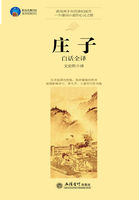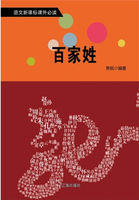Spain, of course, was a very rich country. All the gold and silver of the new world flowed into the Castilian and Aragonian treasuries. But Spain suffered from a curious eco- nomic disease. Her peasants were hard working men and even harder working women. But the better classes maintained a supreme contempt for any form of labour, outside of employment in the army or navy or the civil service. As for the Moors, who had been very industrious artisans, they had been driven out of the country long before. As a result, Spain, the treasure chest of the world, remained a poor country because all her money had to be sent abroad in exchange for the wheat and the other necessities of life which the Spaniards neglected to raise for themselves.
Philip, ruler of the most powerful nation of the sixteenth century, depended for his revenue upon the taxes which were gathered in the busy commercial bee-hive of the Netherlands. But these Flemings and Dutchmen were devoted followers of the doctrines of Luther and Calvin and they had cleansed their churches of all images and holy paintings and they had informed the Pope that they no longer regarded him as their shepherd but intended to follow the dictates of their consciences and the commands of their newly translated Bible.
This placed the king in a very difficult position. He could not possibly tolerate the heresies of his Dutch subjects, but he needed their money. If he allowed them to be Protestants and took no measures to save their souls he was deficient in his duty toward God. If he sent the Inquisition to the Netherlands and burned his subjects at the stake, he would lose the greater part of his income.
Being a man of uncertain will-power he hesitated a long time. He tried kindness and sternness and promises and threats. The Hollanders remained obstinate, and continued to sing psalms and listen to the sermons of their Lutheran and Calvinist preachers. Philip in his despair sent his "man of iron," the Duke of Alba, to bring these hardened sinners to terms. Alba began by decapitating those leaders who had not wisely left the country before his arrival. In the year 1572 (the same year that the French Protestant leaders were all killed during the terrible night of Saint Bartholomew), he attacked a number of Dutch cities and massacred the inhabitants as an example for the others. The next year he laid siege to the town of Leyden, the manufacturing center of Holland.
Meanwhile, the seven small provinces of the northern Netherlands had formed a defensive union, the so-called union of Utrecht, and had recognised William of Orange, a German prince who had been the private secretary of the Emperor Charles V, as the leader of their army and as commander of their freebooting sailors, who were known as the Beggars of the Sea. William, to save Leyden, cut the dykes, created a shallow inland sea, and delivered the town with the help of a strangely equipped navy consisting of scows and flat-bottomed barges which were rowed and pushed and pulled through the mud until they reached the city walls.
It was the first time that an army of the invincible Spanish king had suffered such a humiliating defeat. It surprised the world just as the Japanese victory of Mukden, in the Russian-Japanese war, surprised our own generation. The Protestant powers took fresh courage and Philip devised new means for the purpose of conquering his rebellious subjects. He hired a poor half-witted fanatic to go and murder William of Orange. But the sight of their dead leader did not bring the Seven Provinces to their knees. On the contrary it made them furiously angry. In the year 1581, the Estates General (the meeting of the representatives of the Seven Provinces) came together at the Hague and most solemnly abjured their "wicked king Philip" and themselves assumed the burden of sovereignty which thus far had been invested in their "King by the Grace of God."
This is a very important event in the history of the great struggle for political liberty. It was a step which reached much further than the uprising of the nobles which ended with the signing of the Magna Carta. These good burghers said "Between a king and his subjects there is a silent understanding that both sides shall perform certain services and shall recognise certain definite duties. If either party fails to live up to this contract, the other has the right to consider it ter- minated." The American subjects of King George III in the year 1776 came to a similar conclusion. But they had three thousand miles of ocean between themselves and their ruler and the Estates General took their decision (which meant a slow death in case of defeat) within hearing of the Spanish guns and although in constant fear of an avenging Spanish fleet.
The stories about a mysterious Spanish fleet that was to conquer both Holland and England, when Protestant Queen Elizabeth had succeeded Catholic "Bloody Mary" was an old one. For years the sailors of the waterfront had talked about it. In the eighties of the sixteenth century, the rumour took a definite shape. According to pilots who had been in Lisbon, all the Spanish and Portuguese wharves were building ships. And in the southern Netherlands (in Belgium) the Duke of Parma was collecting a large expeditionary force to be carried from Ostend to London and Amsterdam as soon as the fleet should arrive.
In the year 1586 the Great Armada set sail for the north.
But the harbours of the Flemish coast were blockaded by a Dutch fleet and the Channel was guarded by the English, and the Spaniards, accustomed to the quieter seas of the south, did not know how to navigate in this squally and bleak northern climate. What happened to the Armada once it was attacked by ships and by storms I need not tell you. A few ships, by sailing around Ireland, escaped to tell the terrible story of defeat. The others perished and lie at the bottom of the North Sea.















